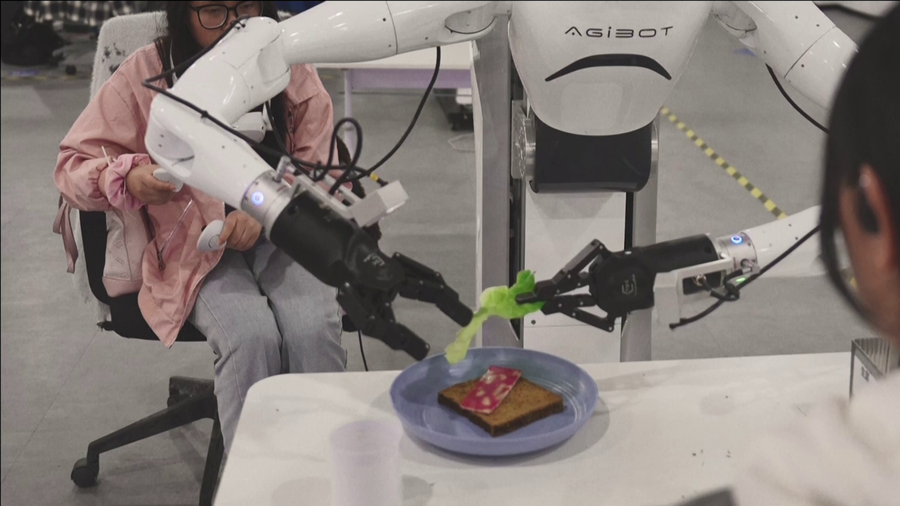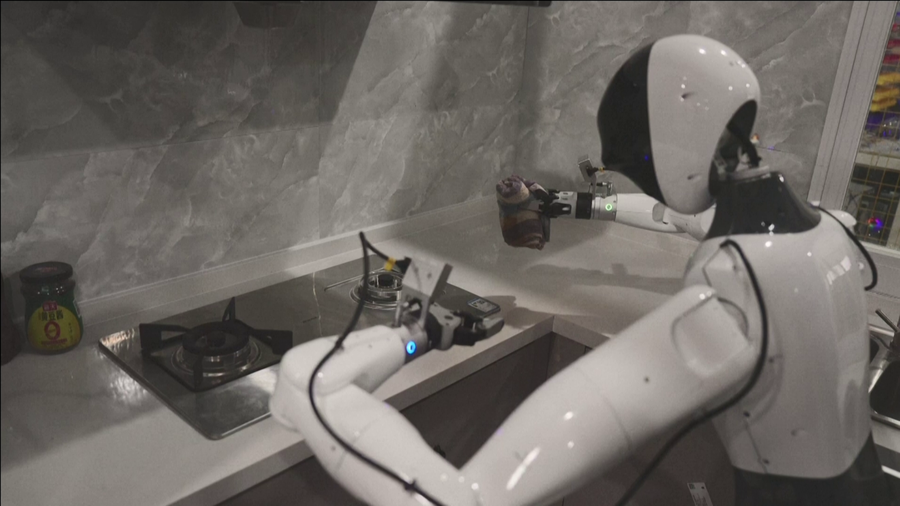In a warehouse on the outskirts of Shanghai, about a hundred humanoid robots are learning to make sandwiches, iron, clean surfaces and arrange flowers for 17 hours a day. These repetitive movements are not just for demonstration, but represent a data-driven effort to improve automation powered by artificial intelligence.
Chinese robotics company Agibot is developing humanoid robots capable of performing everyday tasks, from housework to sales services, as part of a broader strategy to integrate artificial intelligence into everyday life.

Agibot has created simulated environments, such as a grocery store and a furnished apartment, where robots, called Agibot Genie-1, practice real-world tasks under human control. Each action performed by the robots generates data that is then fed into the company's central artificial intelligence system, refining its learning models at scale.
“Robots will initially become useful in structured environments,” said Agibot president Yao Maoqing. “They can perform repetitive and perhaps boring tasks, replacing humans or, more precisely, freeing them from these tedious or dangerous jobs.”

Agibot has launched five robot models, including the A2, a two-legged model that has been sold to automakers and is used in showrooms to interact with visitors. So far, the company has produced over 1,000 robots and delivered 700 of them to customers, mostly in China.
Yao envisions a future where humanoid robots will have improved autonomy and be able to perform more complex actions. “Imagine a day when in our robot factory, robots will assemble themselves,” he said. (A2 Televizion)











